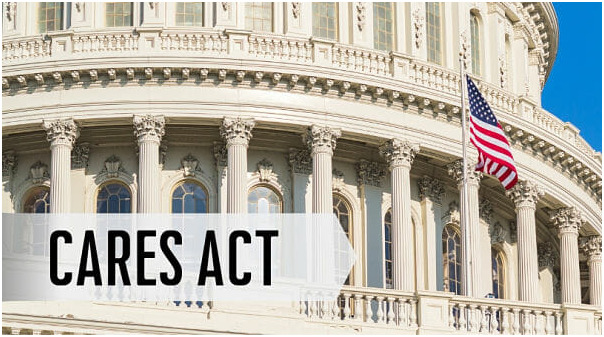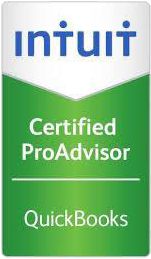The Coronavirus Aid, Relief, and Economic Security (CARES) Act, the stimulus bill that was signed into law on March 27, 2020, contains legislation to stabilize the economy during the coronavirus pandemic. These measures include economic recovery checks for taxpayers, as well as several other tax provisions affecting individuals.
Let us look at a few of the highlights:
Economic Impact Payments
Economic impact payments “recovery checks” will be sent to taxpayers in the next three weeks and will be available throughout the rest of 2020. For most people, they will be distributed automatically, and no action is required. Taxpayers might have questions about economic impact payments and answers to some of these questions are provided below.
- Who is eligible?
Tax filers with adjusted gross income up to $75,000 for individuals and up to $150,000 for married couples filing joint returns will receive the full payment. For filers with income above those amounts, the payment amount is reduced by $5 for each $100 above the $75,000/$150,000 thresholds. Single filers with income exceeding $99,000 and $198,000 for joint filers with no children are not eligible.
Eligible taxpayers who filed tax returns for either 2019 or 2018 will automatically receive an economic impact payment of up to $1,200 for individuals or $2,400 for married couples. Parents also receive $500 for each qualifying child.
- Where will the IRS send my payment?
Most people do not need to take any action. The IRS will calculate and automatically send the economic impact payment to those eligible.
For people who have already filed their 2019 tax returns, the IRS will use this information to calculate the payment amount. For those who have not yet filed their return for 2019, the IRS will use information from their 2018 tax filing to calculate the payment. The economic impact payment will be deposited directly into the same banking account reflected on the return filed.
If the IRS does not have direct deposit information. The Get My Payment tool on IRS.gov allows taxpayers to check the status of their recovery payment. It also allows them to provide banking information once their return has been processed so that individuals can receive payments immediately as opposed to checks in the mail. Please note, however, that the Get My Payment tool does not allow people to change bank account information already on file with the IRS.
- What if I have not filed my 2018 or 2019 tax returns yet?
Anyone with a tax filing obligation who has not yet filed a tax return for 2018 or 2019 to file as soon as they can to receive an economic impact payment and include direct deposit banking information on the return.
If you typically are not required to file a tax return. The IRS will use the information on the Form SSA-1099 or Form RRB-1099 to generate Economic Impact Payments to recipients of benefits reflected in the Form SSA-1099 or Form RRB-1099 who are not required to file a tax return and did not file a return for 2018 or 2019. Each person would receive $1,200 per person, without the additional amount for any dependents at this time and includes senior citizens, Social Security recipients (including Social Security Disability Insurance (SSDI) recipients) and railroad retirees who are not otherwise required to file a tax return.
- Social Security, Railroad retirees and SSDI who have qualifying children will need to take an additional step to receive $500 per qualifying child.
- Other individuals such as low-income workers and certain veterans and individuals with disabilities who are not required to file a tax return are also eligible for an Economic Impact Payment, but in some cases, may need to file a tax return.
Early Withdrawals from Retirement Plans
Taxpayers affected by the coronavirus can withdraw up to $100,000 and will not be subject to the 10 percent penalty for early withdrawals. Distributions can be taken through December 31, 2020. The amount withdrawn is considered income, however, and taxpayers have three years to pay the tax on the additional income and replace the funds in-kind. If you need to withdraw funds from a retirement plan, please call a tax and accounting professional to discuss how it could impact your financial situation.
Eligible taxpayer. Anyone who has been diagnosed with SARS-CoV-2 virus or COVID-19 disease or whose spouse or dependent has been diagnosed with the same. In addition, any taxpayer experiencing financial hardship from any of the following situations:
- Quarantined
- Furloughed
- Laid off
- Work hours reduced
- Unable to work due to lack of childcare
Required Minimum Distributions (RMDs)
Required minimum distributions are suspended for tax year 2020.
Charitable Deductions
For tax year 2020, there is now an above-the-line charitable deduction of up to $300. In addition, the limitation on adjusted gross income (AGI) for charitable contributions (2020 tax year only) increases to 100 percent of AGI for individuals. Food contribution limits also increase to a maximum of 25 percent.
Questions?
Do not hesitate to call and speak to a tax and accounting professional today.
Relief for Other Coronavirus-related Tax Issues

Relief for taxpayers facing the challenges of COVID-19-related tax issues is now available through the IRS People First initiative. The projected start date will be April 1 and the effort will initially run through July 15, 2020. During this period, to the maximum extent possible, in-person contact will be avoided; however, the IRS will continue to take steps where necessary to protect all applicable statutes of limitations.
Some of the highlights affecting taxpayers include:
Installment Agreements
Existing Installment Agreements. For taxpayers under an existing Installment Agreement, payments due between April 1 and July 15, 2020, are suspended. Taxpayers who are currently unable to comply with the terms of an Installment Payment Agreement, including a Direct Deposit Installment Agreement, may suspend payments during this period if they prefer. Furthermore, during this period, Installment Agreements will not be defaulted on. By law, interest will continue to accrue on any unpaid balances.
New Installment Agreements. Taxpayers unable to fully pay their federal taxes can resolve outstanding liabilities by entering into a monthly payment agreement with the IRS. Please contact the office if you need assistance with this.
Offers in Compromise (OIC)
Several steps are available to assist taxpayers in various stages of the OIC process:
- Pending OIC applications – Taxpayers have until July 15, 2020 to provide requested additional information to support a pending OIC. In addition, any pending OIC request before July 15, 2020, will not be closed without the taxpayer’s consent.
- OIC Payments – Taxpayers have the option of suspending all payments on accepted OICs until July 15, 2020, although by law interest will continue to accrue on any unpaid balances.
- Delinquent Return Filings – The IRS will not default an OIC for those taxpayers who are delinquent in filing their tax return for tax year 2018. However, taxpayers should file any delinquent 2018 return (and their 2019 return) on or before July 15, 2020.
- New OIC Applications – Taxpayers facing a liability that exceeds their net worth can resolve outstanding tax liabilities through “Fresh Start.” Do not hesitate to call if you have questions about this.
Non-Filers
If you have not filed a return for tax years before 2019, it is in your best interest to file any delinquent returns as you may be owed a refund. More than 1 million households that have not filed tax returns during the last three years are actually owed refunds and there is still time to claim these refunds. Once delinquent returns have been filed, anyone with a tax liability should consider taking the opportunity to resolve any outstanding liabilities by entering into an Installment Agreement or an Offer in Compromise with the IRS to obtain a “Fresh Start.” Please call if you need help filing delinquent tax returns.
Field, Office, and Correspondence Audits
During this period, generally, no new field, office and correspondence examinations will be started, and the IRS will continue to work refunding claims where possible. New examinations may be started, however, where deemed necessary to protect the government’s interest in preserving the applicable statute of limitations.
In-Person Meetings. In-person meetings regarding current field, office, and correspondence examinations will be suspended. Even though IRS examiners will not hold in-person meetings, they will continue their examinations remotely, where possible. Taxpayers are encouraged to respond to any requests for information they already have received – or may receive – on all examination activity during this period if they can do so.
Unique Situations. There may be instances – particularly for some corporate and business taxpayers – where the taxpayers desire to begin an examination while people and records are available and respective staff are available.
General Requests for Information. In addition to compliance activities and examinations, taxpayers are encouraged to respond to any other IRS correspondence requesting additional information during this time if possible.
Help is Just a Phone Call Away
Specific information about the implementation of these provisions is forthcoming; however, if you have any questions or if any of these situations affect you, please call.
High-deductible Plans Cover Costs for Coronavirus

You can use high-deductible health plans (HDHPs) to pay for 2019 Novel Coronavirus (COVID-19)-related testing and treatment, without jeopardizing their status and you may continue to contribute to a health savings account (HSA), retroactive to January 1, 2020.
Health plans that otherwise qualify as HDHPs will not lose that status merely because they cover the cost of testing for or treatment of COVID-19 before plan deductibles have been met. Furthermore, as in the past, any vaccination costs continue to count as preventive care and can be paid for by an HDHP.
Finally, the CARES Act signed into law in late March of 2020, amended legislation to allow HDHPs to cover telehealth and other remote care services without charging a deductible.
Please note that this information relates only to HSA-eligible HDHPs. Employees and other taxpayers in any other type of health plan with specific questions about their plan and what it covers should contact their plan administrator.
Additional Tax Deadlines Extended
As a reminder, taxpayers now have until July 15, 2020, to file and pay federal income taxes originally due on April 15 and no late-filing penalty, late-payment penalty or interest will be due. Due to the coronavirus pandemic, this relief has been expanded to include additional returns, tax payments and other actions:
- All taxpayers that have a filing or payment deadline falling on or after April 1, 2020, and before July 15, 2020.
- Individuals, trusts, estates, corporations, and other non-corporate tax filers now qualify for the extra time.
- Americans who live and work abroad, can now wait until July 15 to file their 2019 federal income tax return, and pay any tax due.
Extension of time to file beyond July 15
- Individual taxpayers who need additional time to file beyond the July 15 deadline can request an extension to October 15, 2020, by filing Form 4868, Application for Automatic Extension of Time to File U.S. Individual Income Tax Return.
- Businesses who need additional time must file Form 7004, Application for Automatic Extension of Time To File Certain Business Income Tax, Information, and Other Returns.
An extension to file is not an extension to pay any taxes owed. Taxpayers requesting additional time to file should estimate their tax liability and pay any taxes owed by the July 15, 2020, deadline to avoid additional interest and penalties.
Estimated Tax Payments
Relief is also extended to estimated tax payments due June 15, 2020. This means that any individual or corporation that has a quarterly estimated tax payment due on or after April 1, 2020, and before July 15, 2020, can wait until July 15 to make that payment, without penalty.
Unclaimed Refunds
There is a three-year window of opportunity to claim a refund from prior years’ tax returns. If taxpayers do not file a return within three years, the money becomes property of the U.S. Treasury. For 2016 tax returns, the normal April 15 deadline to claim a refund has also been extended to July 15, 2020.
If you have any questions regarding the coronavirus pandemic and your taxes, help is just a phone call away.
Read our latest blog about the PPP, forgiveness guidance, and more. We will continue to keep you updated on the latest information

You May Also Be Interested In
Feature Articles
Tax Tips










